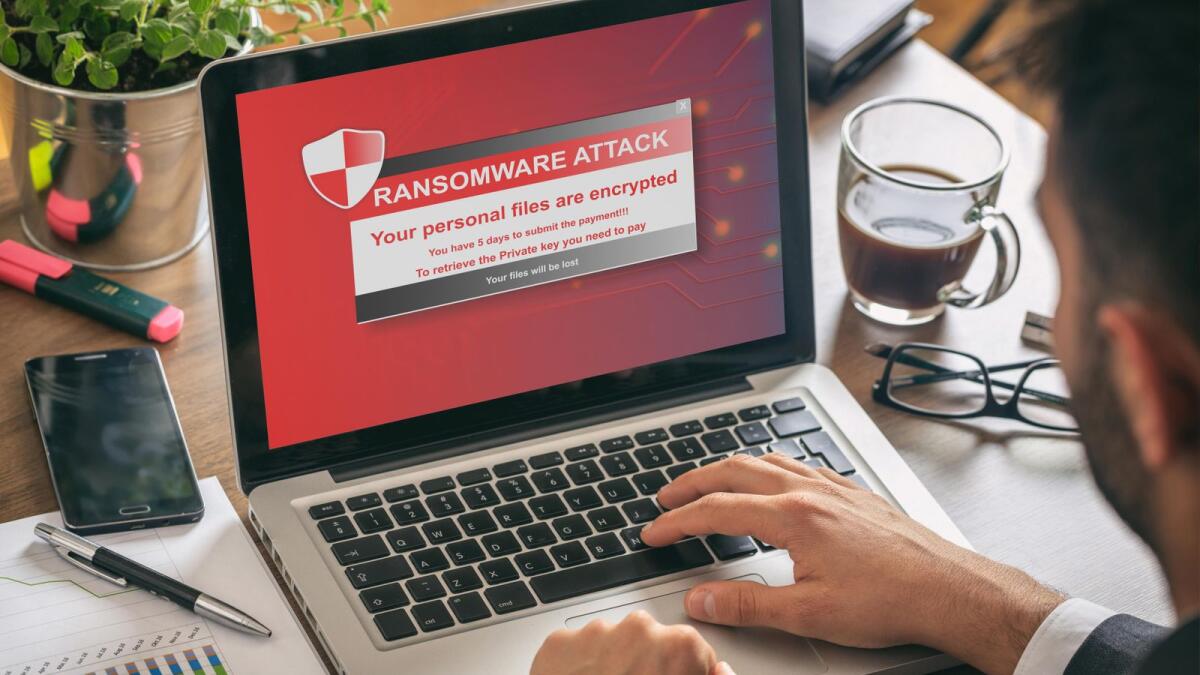The 21-year-old forward is enjoying a breakthrough season following his surprise move from City on transfer deadline day in September
Revealed: UAE firms paid more than Dh5.1 million in ransomware
Dubai - 90% of firms that paid a ransom demand were hit again, says new report
Many companies in the UAE have paid more than $1.4 million (Dh5.1 million) in ransomware to regain access to their systems after cyberattacks in the past two years and 42 per cent of had to close down operations after the ransomware attack, according to a new report released on Wednesday (June 16).
Based on survey of around 1,300 security professionals, the study, conducted by Cybereason, found that ransom demands from the UAE firms are increasing as 63 per cent of businesses paid between $350,000 (Dh1.3 million) and $1.4 million as ransom and another 10 per cent paid in excess of $1.4 million.
The numbers of UAE firms paying ransom are 28 per cent higher than the global average.
The study found that 42 per cent of firms who had paid ransom were forced to close down, which is 16 per cent higher than the global average. While 29 per cent were forced to lay off employees due to financial pressure after the ransomware attack.
“Ransomware attacks are a major concern for organisations in the UAE and across the globe, often causing massive business disruptions including the loss of income and valuable human resources as a direct result,” said Lior Div, the Chief Executive Officer (CEO) at Cybereason.
Altogether, around 37 per cent UAE companies said they were hit by a ransomware attack in the last two years and a staggering 84 per cent of them paid the ransom, which is 24 per cent higher than the global average.
Data showed that 90 per cent of those firms who had paid ransom suffered a second ransomware attack, often at the hands of the same threat actor group, said Cybereason’s report.
Around 59 per cent of the organisations which opted to pay ransom to regain access to their encrypted systems found that some or all of their data was corrupted during the recovery process.
“Our survey findings underscore why, with the exception of cases where there is a threat to life, it does not pay to pay ransomware attackers. Paying a ransom demand does not guarantee a successful recovery, does not prevent the attackers from hitting the victim organisation again, and in the end only exacerbates the problem by encouraging more attacks,” said Div.
“Getting in front of the threat by adopting a prevention-first strategy for early detection will allow organisations to stop disruptive ransomware before they can hurt the business,” Div added.
-waheedabbas@khaleejtimes.com

More news from
To assist Indian nationals at the Dubai airport, the Consulate General of India in Dubai has operationalised emergency helpline numbers
The Argentine goalkeeper made the save that sent his side through to their first major European semi-final since 1982 after penalty chaos against Lille
After the evacuation, an area was set up to provide food, water, and medical assistance to the citizens residing in the community
The Red beat Italian side Atalanta in the second leg quarter-final but lost 3-1 on aggregate as Leverkusen advance to semis despite 1-1 draw with West Ham
US equity futures and Asian shares declined while safe haven demand lifted US Treasuries
Passengers reaching their final destination without their baggage should contact the airport airline representative or contact their airline call centre, DXB said
Spot gold was trading at $2,384.14 per ounce at 9.25 am UAE time, up 0.17 per cent











